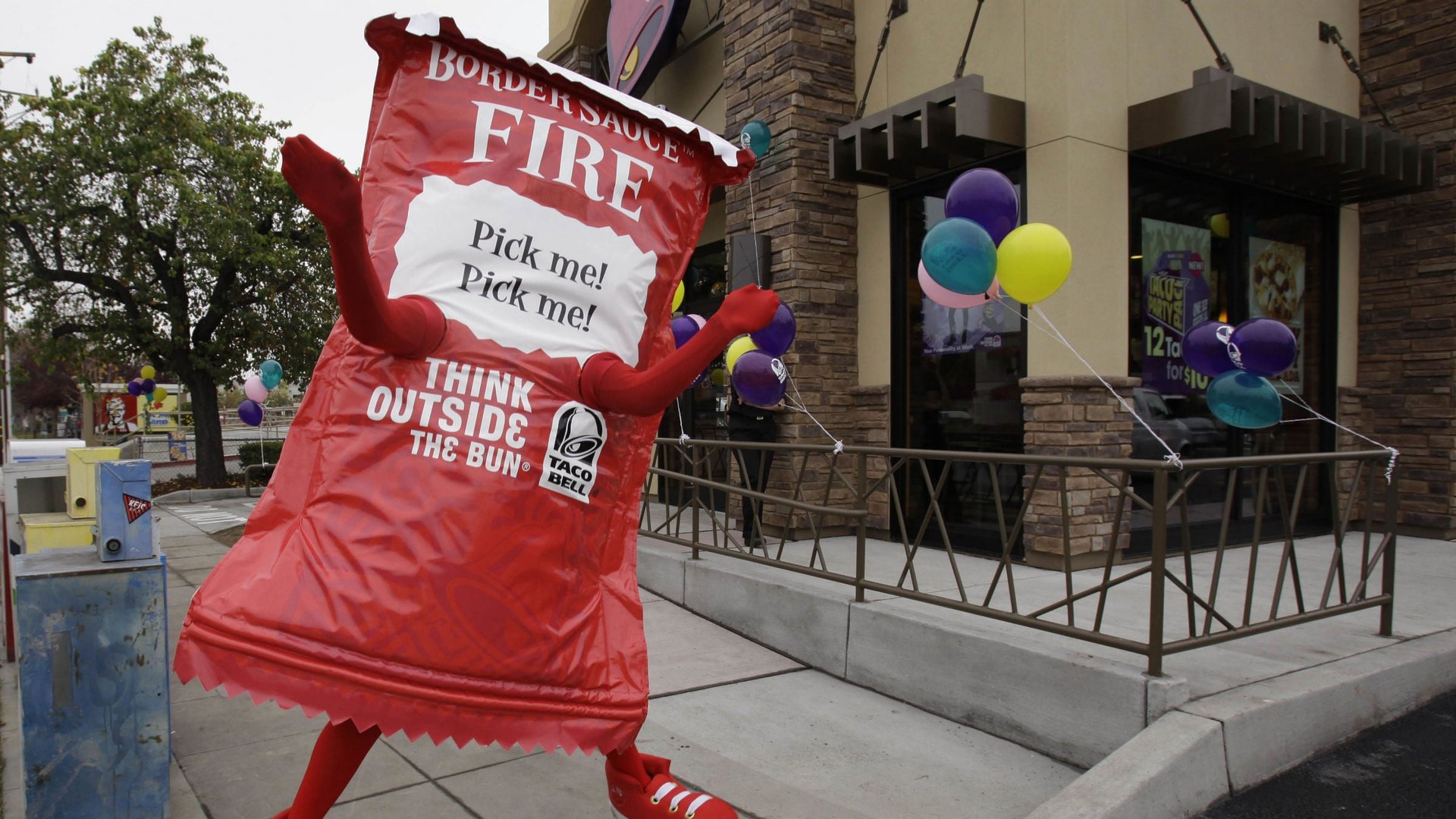Why Taco Bell shouldn’t call its workers’ “champions”
Michael Jordan is a champion. Derek Jeter is a champion. Brandi Chastain is a champion. But Taco Bell’s cashiers?


Michael Jordan is a champion. Derek Jeter is a champion. Brandi Chastain is a champion. But Taco Bell’s cashiers?
According to a spokesperson, Taco Bell calls the people who prepare their food “food champions” and the people who tend the registers “service champions.”
Taco Bell isn’t alone in putting a positive spin on their job titles. Disney refers to its employees as “cast members,” and some are even “imagineers.” Apple has its “geniuses.” (In a similar vein, Subway has taken to calling its customers “fans.”)
Why do companies insist on these strained nicknames? Adam Grant, a professor of management and psychology at the University of Pennsylvania’s Wharton School of Business, says that these optimistic labels certainly can backfire, but that they do have the potential to make workers happier. “If employees identify strongly with the titles,” he says, “they may actually find them meaningful.” In fact, one of Grant’s forthcoming studies found that when employees came up with their own titles, they were less emotionally exhausted by their jobs.
Dan Cable, a professor at London Business School and one of the study’s co-authors, adds that these titles are more likely to work when they speak to what makes a job special. Because the term “imagineer” captures the genuinely unique fusion of engineering and fun, it might well be working in Disney’s favor by demonstrating a certain corporate culture.
Stephen Fineman, a professor at the University of Bath’s School of Management, wrote a bracing paper in 2006 on overly cheery corporate practices. Positive psychology, a relatively modern school of thinking, holds that within everyone is a latent ability to bloom and flourish, and that all companies need to do to tap into that is to nourish them—throw them parties occasionally, and call them nice things. Positive psychologists’ research has suggested, Fineman writes, that “the fusing of personal identity with one’s work can create meaningfulness.” If you call them “champions” often enough, the thinking goes, they’ll feel like champions.
But what about those “champions,” whose jobs resemble those of millions? Or, for that matter, the “sales ninjas” and “word herders” that are apparently so in vogue these days, according to the business-card printing company Moo.com? There is a whole class of job titles that are less consumer-facing than ones like “genius,” and these shed light on a larger problem: fun as dictated by corporate mandate.
Fineman takes on this management mentality with vigor, warning of positiveness’s “monocultural tint.” He dismantles the positive rationale in many artful ways, but his central counter-argument is that “in privileging positive talk, [positive psychology] fails to engage with the emotionally ambiguous circumstances of the workplace.” Calling a janitor a “cast member,” then, is an act so full of sunshine that it leaves no room for negativity—and thus no room for the possibility that good things can come out of bad experiences.
Decreeing that customers be referred to in-house as “fans” is akin to the enforced fun of many team bonding activities. Themed dress-up days and company-wide raffles, Fineman writes, are troubling when viewed through the lens of productivity enhancement: “Fun and humor are appropriated as tools to enhance well-being and happiness at work, but simultaneously (and seemingly necessarily) as means for greater management control.”
Coming down as anti-fun might seem like an unpopular position, but Fineman’s point is more nuanced than that. What, after all, is less fun than unwittingly falling victim to the ruses of a corporate power structure? Near the end of his paper, in one of his sharpest observations, Fineman points out the obfuscation involved in companies’ happy-go-lucky language: “Positiveness is self-limiting because it is constrained by structural inequalities in power: the paradoxical process of management taking action to empower others, when that is itself an exercise of power.” In this context, Fineman seems closer to genius than most Apple employees.